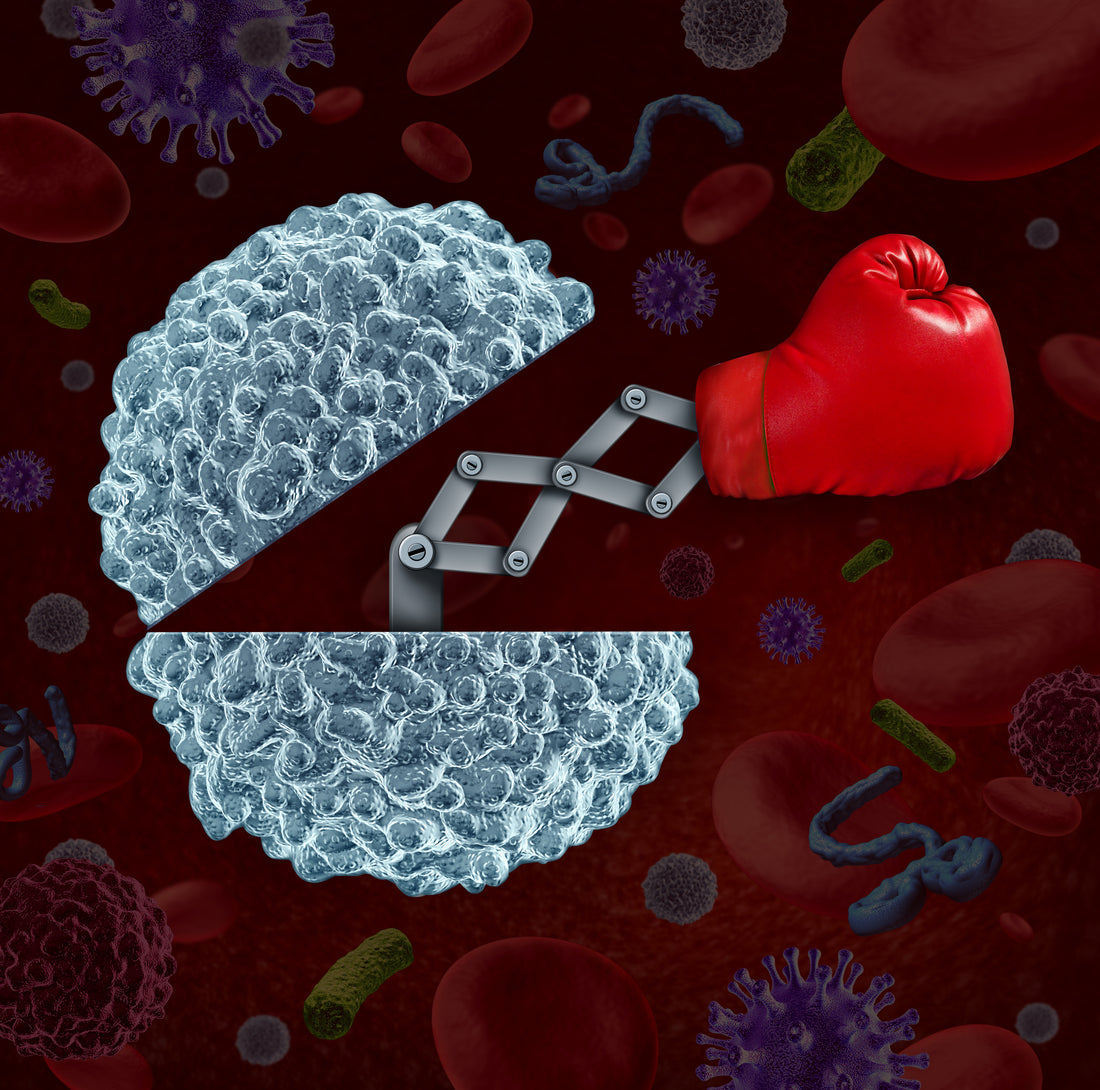
Epstein-Barr Virus and the Immune System
Share
Some viral infections are self-limited, like viruses that cause cold and upper respiratory infections but there are other viruses that, once you're infected with them, can hang around indefinitely. One such virus is called the Epstein-Barr virus. Epstein-Barr belongs to a family of viruses called herpes viruses. Herpes viruses are more familiar than you might think. It's this family of viruses that cause several common infections including chickenpox and cold sores.
The Epstein-Barr virus itself is the main virus that causes another common infection in young adults called mononucleosis. Mononucleosis is sometimes referred to as the "kissing disease" because it's spread from person-to-person through saliva. Most people recover from mononucleosis without long-term complications but that doesn't mean the Epstein-Barr virus goes away with the symptoms. Instead, the virus can go "undercover" and live inside immune cells for years. Children who are infected with the Epstein-Barr virus frequently have no symptoms at all.
Concerns about the Epstein-Barr Virus
The Epstein-Barr virus is thought to be the driving force behind other health problems. The virus has been linked with some cancers including lymphoma, cancer of the lymph nodes, and cancer of the nasopharynx (nose and throat). The Epstein-Barr virus is also linked with a common autoimmune disease that affects primarily young people called multiple sclerosis. Multiple sclerosis is a disease where immune cells attack the myelin sheath that insulates nerve cells. People with multiple sclerosis may experience an increase in antibodies to Epstein-Barr prior to a flare-up of multiple sclerosis symptoms.
How common is the Epstein-Barr virus? Most people by the time they reach adulthood have been exposed to it. In fact, between 90 and 95% of adults have antibodies against the virus, indicating they've been infected at some point. Unlike the common cold virus and other viruses that drive people to see a doctor, the Epstein-Barr virus doesn't always cause symptoms. You can carry the virus in an inactive state inside your body without feeling ill. If you don't have symptoms, should you worry? The biggest concern is the dormant virus could "wake up" from its dormant state and become active, only this time lead to a more serious health problem such as lymphoma.
The Impact of Epstein-Barr on the Immune System
How are people infected with the virus? The Epstein-Barr virus first enters the body through the mouth and throat. From there, it infects and "takes control" of immune cells called B-cells, the same cells that produce antibodies. Once inside cells, the virus is able to replicate and reproduce itself, churning out more and more copies of itself that can infect other B-cells. Your body's best defense against interlopers, the immune system, including T-cells and natural killer cells, gear up to fight the foreign invader but is usually not completely successful at eliminating every Epstein-Barr infected B-cells. Even after signs of infection have cleared, the virus remains dormant, or inactive, inside B-cells.
If all goes well, the immune system will keep the viral-infected B-cells in check so the virus isn't reactivated and does no harm - but it's a delicate balance. If the immune system "falls down on the job," the virus can "wake up" and cause more serious health problems like lymphoma. When this happens, B-cells held hostage by the virus can trigger uncontrolled cell growth that leads to a cancer or other health problems from the virus like chronic fatigue syndrome (CFS). The Epstein-Barr virus is a master at exploiting the immune system. On the other hand, a healthy, strong immune system is the key to keeping the Epstein-Barr virus in check. It's one more example of why immune health is so important. Maintaining a balanced immune system that can recognize and keep interlopers like Epstein-Barr in check is absolutely essential to staying healthy.
It has been shown that Thymus polypeptides such as are contained in BIOPRO-PLUS™, have demonstrated the ability to stimulate mature lymphocytes and enhance mammalian immune response to infectious agents. Furthermore, they have demonstrated the ability to decrease the Epstein-Barr antibody titers, which suggest thymus polypeptides may be useful in strengthening the immune system to combat the deleterious effects of the Epstein-Barr virus. The protein is well tolerated and also may give increased energy to those taking it on a regular basis.
To learn more and purchase this extraordinary immune supplement BIOPRO-PLUS™, Click Here Now!
-By Alternative Health Concepts
References:
Front Microbiol. 2011; 2: 5.Published online Jan 26, 2011. doi: 10.3389/fmicb.2011.00005.
Clin. Microbiol. Rev. January 2011 vol. 24 no. 1 193-209.
Up to Date. "Clinical manifestations and treatment of Epstein-Barr virus infection"
Riordan, PA-C, Neil H., Jackson, PhD, James A.
“The Effects of Thymus Protein on Elevated Epstein-Barr Virus Titers”
Project RECNAC, 3100 Hillside Ave, Wichita, KS 67219
Wichita State University
